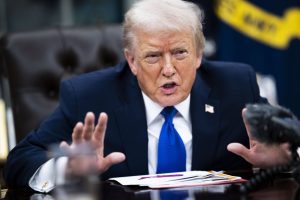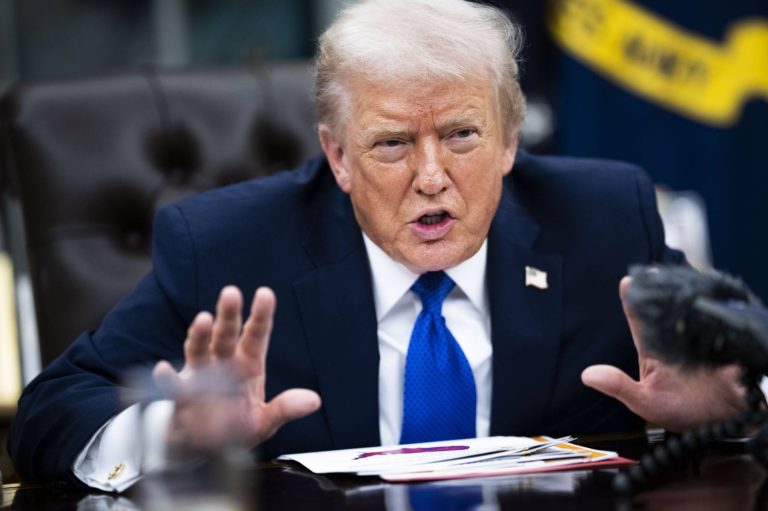NOTE: VIDEO AT THE END OF THE ARTICLE.
Recent declassifications by Director of National Intelligence Tulsi Gabbard have sent ripples through Washington, exposing troubling internal discord within the U.S. intelligence community regarding the infamous Steele dossier’s influence on the 2017 Intelligence Community Assessment (ICA) on Russian interference in the 2016 presidential election.
The newly released documents reveal for the first time that key officials within the intelligence apparatus had serious concerns about the dossier’s role in shaping the assessment — concerns that were kept from the broader intelligence community and the public for years. This disclosure raises profound questions about adherence to standard analytic protocols and the integrity of the intelligence process during a politically charged period.
The Steele Dossier: Background and Controversy
The Steele dossier, compiled by former British intelligence officer Christopher Steele, was funded by opposition research firm Fusion GPS, with financing tied to the Hillary Clinton campaign via attorney Marc Elias. Though originally intended to uncover links between then-candidate Donald Trump and Russian operatives, many of the dossier’s explosive claims have since been discredited or remain unverified.
Despite its questionable credibility, the dossier played an outsized role within the FBI and Department of Justice, notably in obtaining FISA warrants to surveil Trump campaign adviser Carter Page. What has now come to light is that the dossier’s unvetted content also found its way into the Intelligence Community Assessment on Russian election interference—a pivotal report that framed the narrative around foreign election meddling under the Obama administration.
Declassified Emails Expose Internal Alarm
Among the declassified materials are emails from late 2019 revealing the shock and frustration of senior intelligence officials who only belatedly learned of the dossier’s influence. A deputy national intelligence officer (NIO) for cybersecurity candidly expressed in one communication: “At no time in my IC career has ‘dossier’ material ever been represented to me… as credible or influential in crafting NIC products.”
This statement underscores a fundamental breach in transparency and analytic rigor. The National Intelligence Council (NIC), responsible for bridging intelligence analysis and policymaking, was reportedly kept in the dark about the dossier’s role until well after the ICA had been completed and publicized.
Institutional Failures and Political Pressures
An eight-page internal “lessons learned” report from the CIA further criticizes top leadership for ignoring long-established intelligence tradecraft. The report singles out CIA Director John Brennan and FBI Director James Comey for their role in sidelining the NIC and rushing the ICA to publication without allowing proper review.
The document states that the NIC was effectively “shut out” and denied a meaningful opportunity to vet the dossier’s incorporation. Moreover, it accuses senior officials of prioritizing “narrative consistency over analytical soundness,” suggesting political considerations may have influenced intelligence outputs.
Implications for U.S. Intelligence and Governance
The ramifications of these revelations are profound. The politicization of intelligence not only undermines the credibility of U.S. agencies but also raises constitutional concerns about due process and oversight. Gabbard’s disclosure invites renewed scrutiny of how intelligence assessments are constructed, particularly in politically sensitive contexts.
As the nation continues to grapple with the legacy of the 2016 election and its aftermath, this bombshell brings urgency to calls for greater transparency, accountability, and reform within the intelligence community.
Director Gabbard’s decision to declassify these emails underscores her commitment to restoring faith in American intelligence institutions. The story is far from over, and Washington will be watching closely to see how these revelations shape future intelligence operations and public trust.
PLAY:

Sarah Mitchell is a bestselling novelist recognized for her insightful and emotionally resonant stories that explore the complexities of human relationships. Originally from Denver, Colorado, Sarah grew up in a family of teachers who nurtured her curiosity and love for storytelling. She studied psychology at Stanford University, where she became fascinated by the intricacies of human behavior—an interest that would later shape her writing career. Sarah’s novels are praised for their nuanced characters, intricate plots, and ability to capture the subtle tensions that define love, friendship, and family ties. Her breakthrough novel, The Spaces Between Us, became an instant bestseller, lauded for its honest portrayal of strained family relationships and the fragile bonds that hold people together. Since then, she has published several works that continue to captivate audiences around the world. Outside of her writing career, Sarah is passionate about mental health advocacy and often partners with organizations to promote awareness and support for those struggling with emotional well-being. Her personal life is quieter—she enjoys hiking in the Colorado mountains, practicing yoga, and spending time with close friends. With each new book, Sarah Mitchell cements her reputation as a writer who illuminates the beauty and struggles of human connection.









